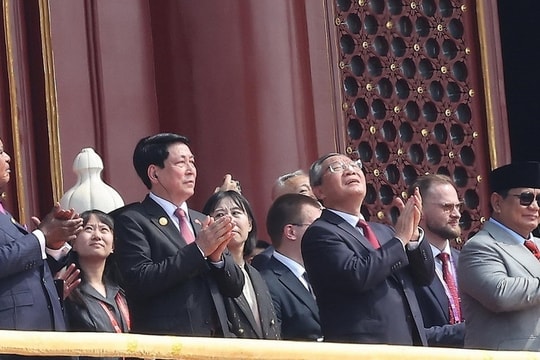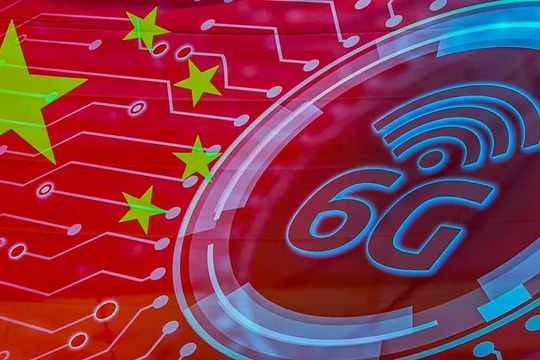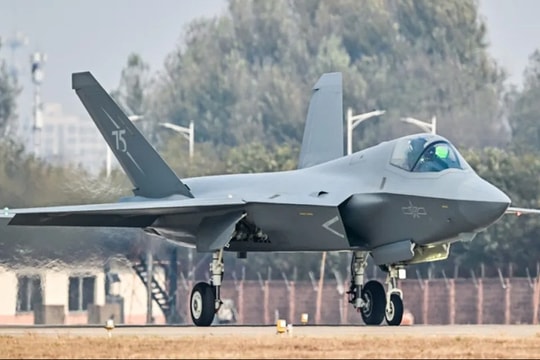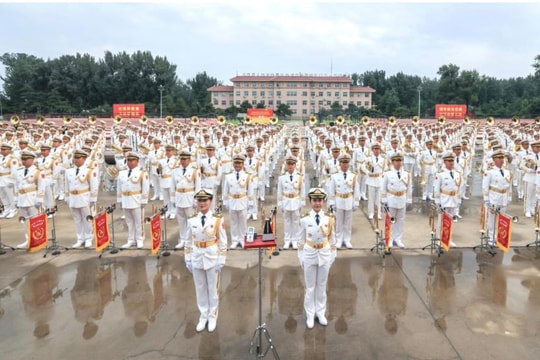Secret meeting at Chinese leaders' resort
The meeting of China's leadership at Beidaihe is key to many important changes in the country's history, so there is much speculation surrounding the event.
 |
Chinese Politburo Standing Committee member Liu Yunshan (front, right) meets with a group of scholars invited to a vacation in Beidaihe. Photo: Xinhua |
Last week, US President Barack Obama vacationed at Martha's Vineyard, a favorite summer resort of US presidents.
Meanwhile, China’s top leaders are likely to be at the Beidaihe resort in Hebei province, 280 km east of Beijing, according to SCMP. CNBC sources said the meeting usually takes place at four to five villas in the resort.
While the US media closely followed Mr. Obama as he enjoyed his final summer vacation in office, Chinese state media made no mention of the vacations of its leaders, even though Chinese President Xi Jinping and Chinese Premier Li Keqiang have not appeared in public since early August.
The only sign that China’s leaders were on vacation came when Xinhua reported on August 5 that Politburo Standing Committee member Liu Yunshan met a group of scholars invited to the Beidaihe retreat. Xinhua stressed that Liu was acting on behalf of Xi.
As China’s leaders returned to work on August 15, state media continued to report heavily on their meetings and directives, but made no mention of the previous two weeks of silence.
It is unclear why Chinese leaders – unlike their foreign counterparts – do not publicize their summer vacations. Mr. Wang suggested that they may think doing so would make them appear less like leaders or damage their propaganda image as tireless workers for the people.
Important meeting
According to SCMP, many important changes in China originate from closed-door meetings, and all meetings are held in secret. Since 1953, the leaders of the Chinese Communist Party have started meeting in Beidaihe every summer to avoid the heat of the capital, just like the Chinese elite and foreign diplomats in the past. Mao Zedong is said to have stayed in Beidaihe for at least four months in 1954.
This tradition ended with the outbreak of the Cultural Revolution (1969–1976), but resumed in 1984, when Deng Xiaoping began spending summer vacations there.
 |
Former Chinese leader Deng Xiaoping (front, right) goes swimming in Beidaihe in July 1987. Photo: Xinhua |
In 2003, Hu Jintao, upon becoming China's president, reportedly stopped the tradition, saying that moving the party, government, legislative, and military apparatus to the resort was a waste of state money. However, retired leaders continue to vacation there.
In 2013, when Mr. Xi came to power, this tradition seemed to be revived.
Although held in secret, the meetings at Beidaihe have long been the subject of speculation in foreign media, especially Chinese-language publications.
SCMP said that this summer meeting is of interest because it comes ahead of an important meeting of the Central Committee of the Communist Party of China in October. The country's leaders will meet to discuss and approve new rules for regulating members, especially senior officials, as Mr. Xi is stepping up his anti-corruption campaign.
Speculation has swirled about whether leaders will discuss a new leadership lineup to be announced at the 19th Chinese Communist Party Congress, scheduled for late next year, when five of the seven members of China's Politburo Standing Committee (all but Mr Xi and Mr Li) are set to retire.
There are also rumours that Mr Xi intends to ask Mr Li to relinquish some control over economic decisions, after the two men fell out over the direction of the economy.
It may take days or weeks for news of their discussions to appear in foreign media, and they will inevitably be peppered with speculation. Such reports are likely to upset China’s leaders, as they add to international concerns about China’s internal political struggles and its plans to steer the world’s second-largest economy, said Wang Xiangwei, a former editor-in-chief of the SCMP and now a Beijing-based adviser to the paper.
But this is partly because Chinese leaders “have not been public about the meetings at Beidaihe,” Mr. Wang wrote.
According to VNE
| RELATED NEWS |
|---|





.jpg)


